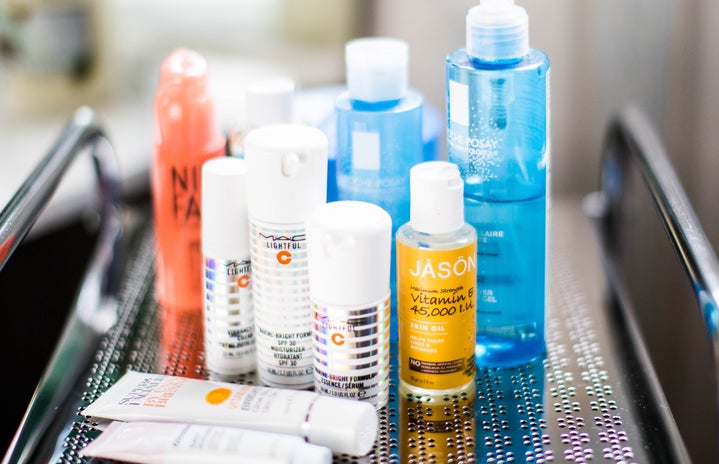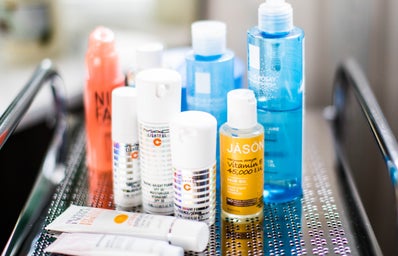There are only so many times that you can announce that you’re opting for the ‘dewy’ skin look. Here are some tips on how to keep the shine at bay and stay fresh faced year-round.
Wash and blot!
Whether you suffer from oily, dry or combination skin, it is vital to wash your face frequently. Dermatologists recommend 2-3 times a day for oily skin types, so getting into a routine of once in the morning and once before you go to bed is a good idea. This will prevent oil build-up and keep your pores clear. For those with extremely sensitive skin, it may be safest to stick with just warm water to avoid further irritation. Alternatively, gentle cleansers free of sulphates and other harsh chemicals are your best bet. While benzoyl peroxide, salicylic acid, glycolic acid or beta-hydroxy acid can help to clear acne and blackheads, sulphates often act to dry out your skin, causing a reaction of increased oil-production to compensate. In the short-term, you can also keep that pesky shine at bay by blotting throughout the day.
Moisturize
Though it can feel counter-intuitive to apply yet more moisture to your skin when oily, this is actually the time when your skin is in most vital need of it. A lack of moisture spurs further oil production in the skin, so the instinct to take any measures to dry your skin out a little more is not a helpful one in the long run. Lightweight, water-based moisturisers that are non-comedogenic (meaning it won’t clog pores) and oil-free can restore balance to your over-working oil production. Skin experts often recommend seeking out moisturiser formulas with glycerin and sodium hyaluronate for their ability to keep skin cells plump with water, so keep your eyes peeled when browsing the backs of bottles in Boots.
Exfoliate
People of all skin types should exfoliate, but it is particularly important for sufferers of oily skin. Those with oily skin are more likely to accumulate thick layers of buildup and dead skin cells. It is often these buildups that are to blame for spots and blackheads, and exfoliating (ideally up to three times a week, depending on the sensitivity of your skin) can work its way through to wash away buildups and prevent breakouts. Exfoliators containing salicylic acid that can penetrate deep inside the pore lining are particularly good for clearing blemishes. But be careful with this step – over-exfoliating can be extremely damaging to the skin. Over-zealous scrubbing can cause broken blood vessels beneath the skin surface, leading to excessive dryness, irritation, redness and sensitivity.
Avoid the T-Zone
The T-zone is the area from the forehead, down the nose and to the chin. This region has more sebaceous (oil-producing) glands than any other parts of the face, which is why it tends to be the area looking the shiniest at the end of the day. Again, though it may feel counter-intuitive, it can be wise to avoid the T-zone altogether when applying serums, or any other products not effective in combatting oily skin. Reactionary sebaceous glands here go into over-drive if they are layered with pore-clogging or drying ingredients, such as sodium or ammonium lauryl sulfate and alcohols, leading to the infamous ‘T’ shape of oil we would all rather avoid. Using a powder-based rather than liquid-based foundation in this area can reduce shine visibility and prevent breakouts while its at it.
Don’t Forget SPF!
Although the sunshine may feel like a distant memory, we are exposed to radiation from the sun even when we can’t see it – it is still extremely damaging and drying to the skin. As we have mentioned, dried out skin fast becomes oily when your sebaceous glands begin to produce more oil to compensate for the diminished moisture. We are not suggesting you dash out for the Factor 50 in the midst of November, but opting for products containing small amounts of SPF will keep your skin safe and pimple-free all year round. You can now even get your hands on mineral powder sunscreens, containing titanium dioxide, zinc oxide and iron oxide particles that offer protection from the sun without clogging your pores.

